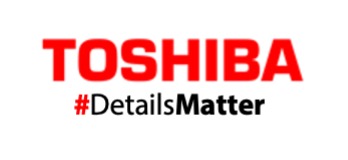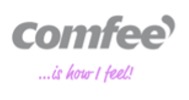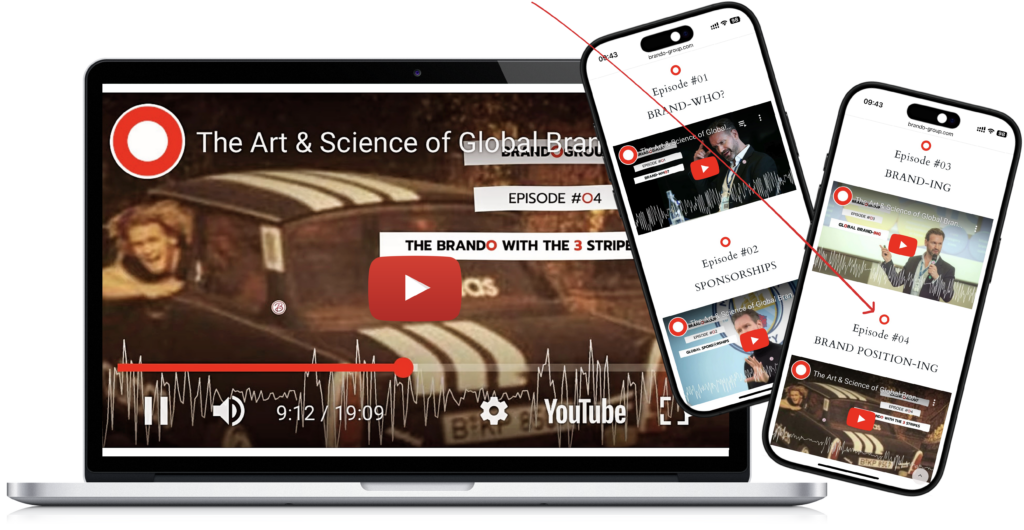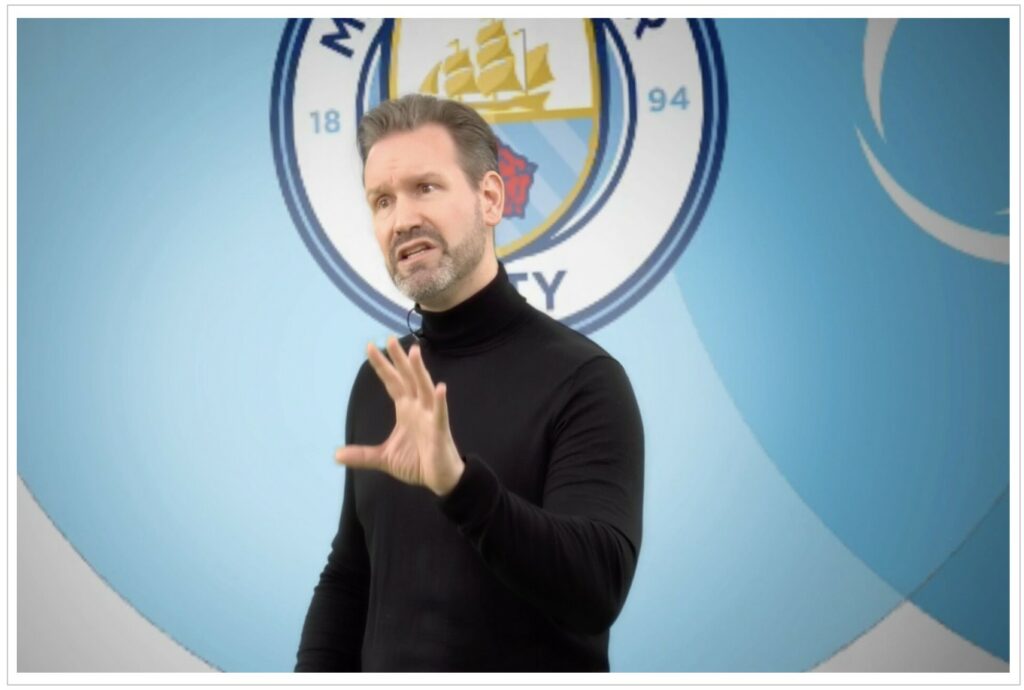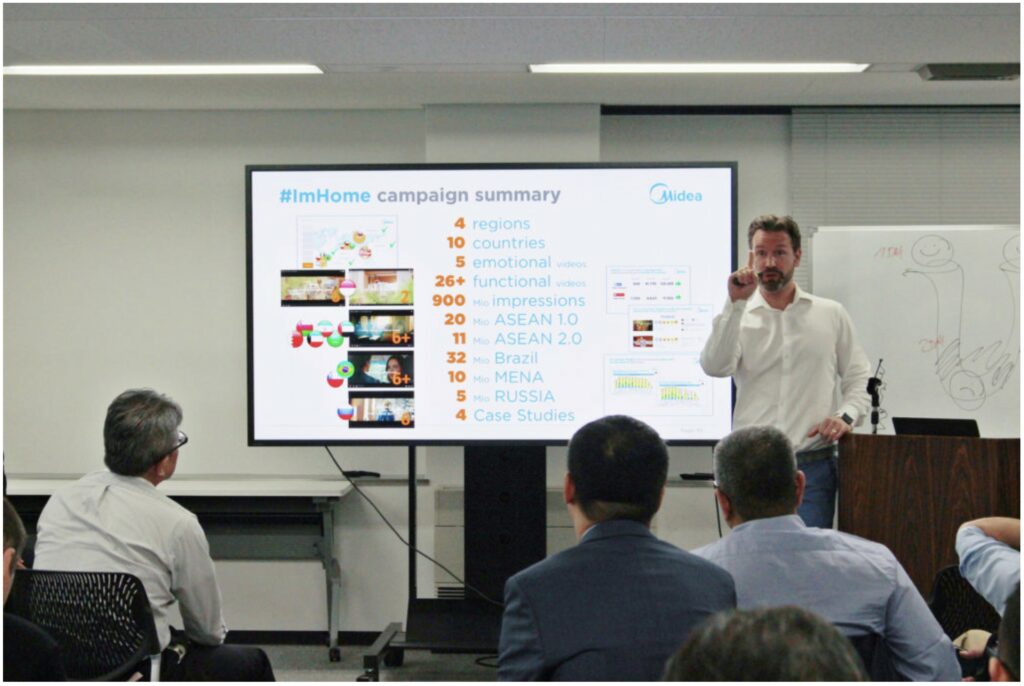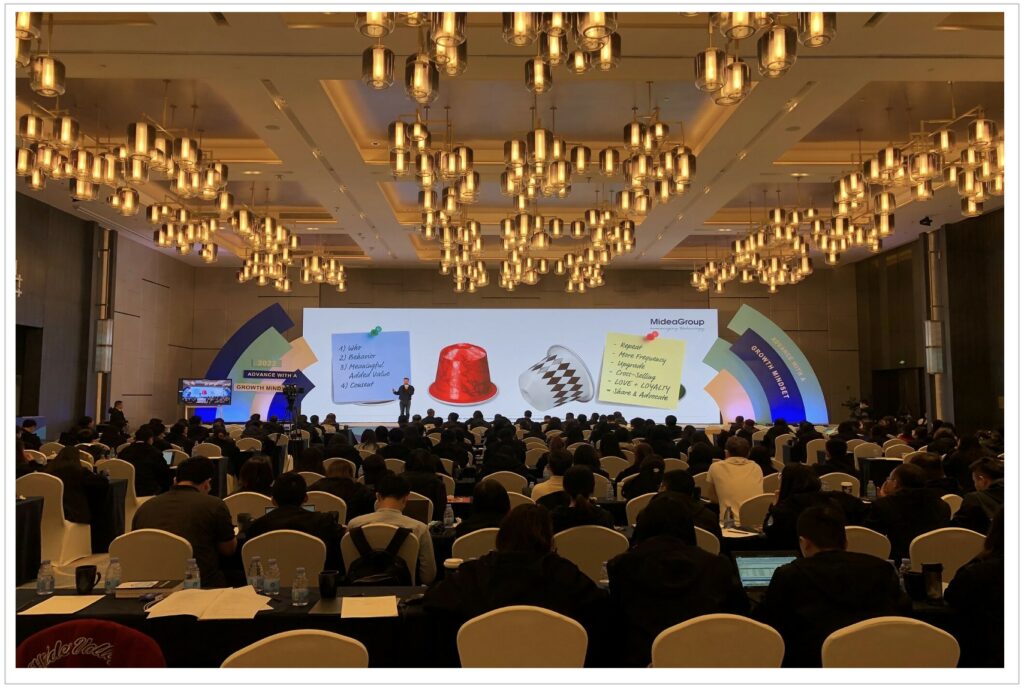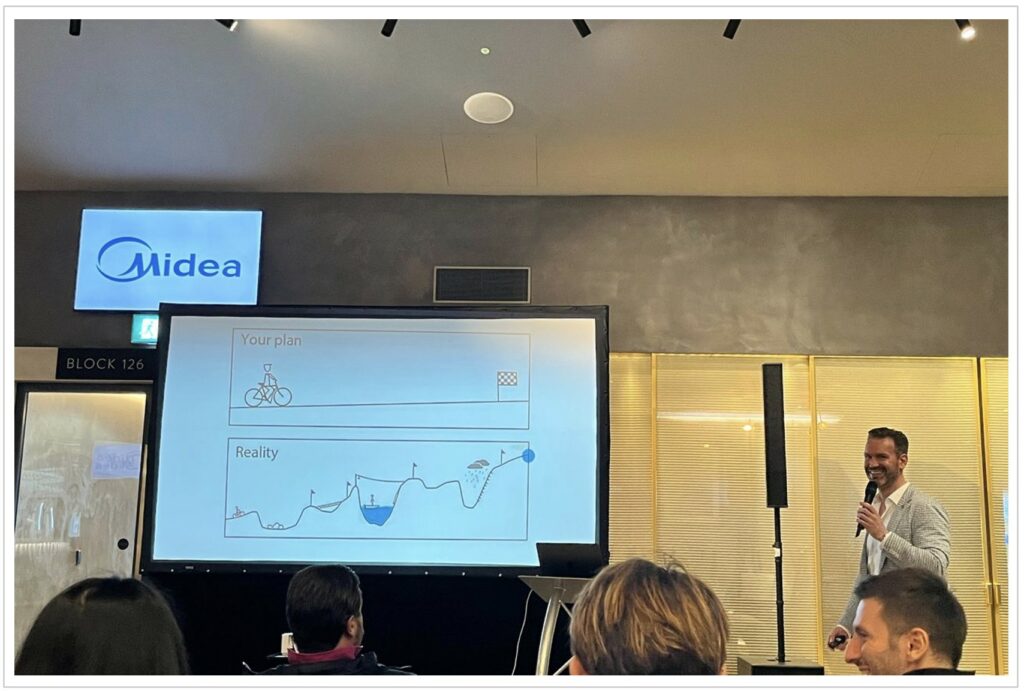The Art + Science of
Brand Positioning(s)
Brand Positioning(s) - the work almost at the very beginning of any #Branding work stream - are among my absolute favorite projects.
Brands have been fascinating me since being a teenager, and back then, without Internet nor Social Media 'Brand Building' in form of communication was done via 'TV' + 'Print'... and like in most households, my parent's 'hated' the 'brainwashing stupid' (as my dad used to called it) advertising block interrupting the 'program'...
I loved it! ...and hence, tried to (better) understand it. Wanted to find out more about that 'Industry'.
I started with the #Photography + #Design part but also the #Psychology behind it ...before later falling even more in love with the #NeuroScience + #BehavioralEconomics behind all of it!
All my Brand Positioning Deployments & Trainings I start with what brand's are, where branding comes from...

...list some of the world's most famous = mostly most successful brands... most audiences have a clear idea about what they stand for + with or even without a slogan clearly 'own' a space in (y)our mind ...but in (y)our heart (mostly subconsciously), too! 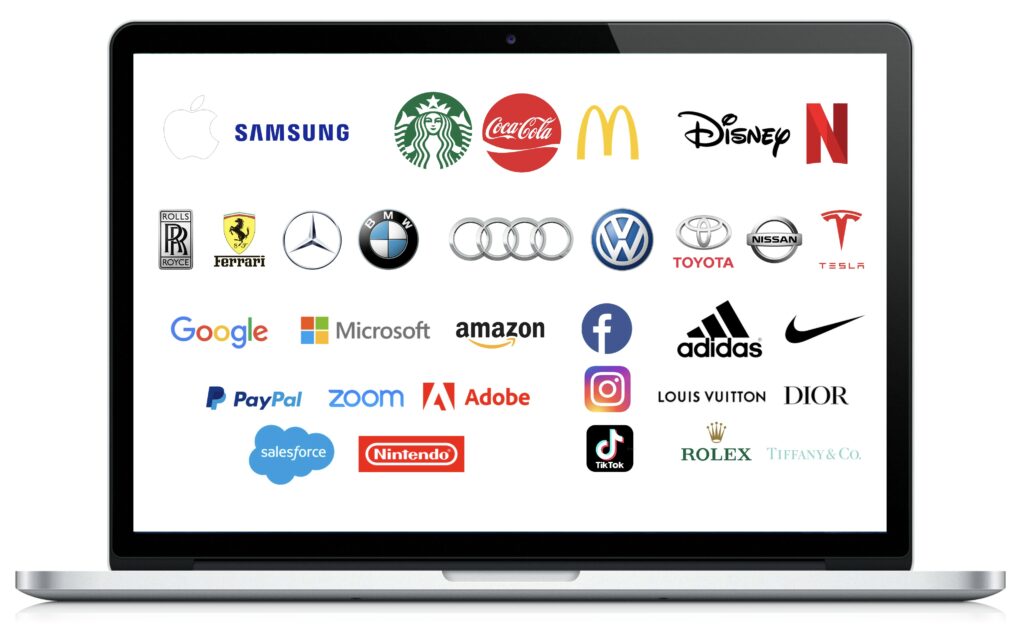
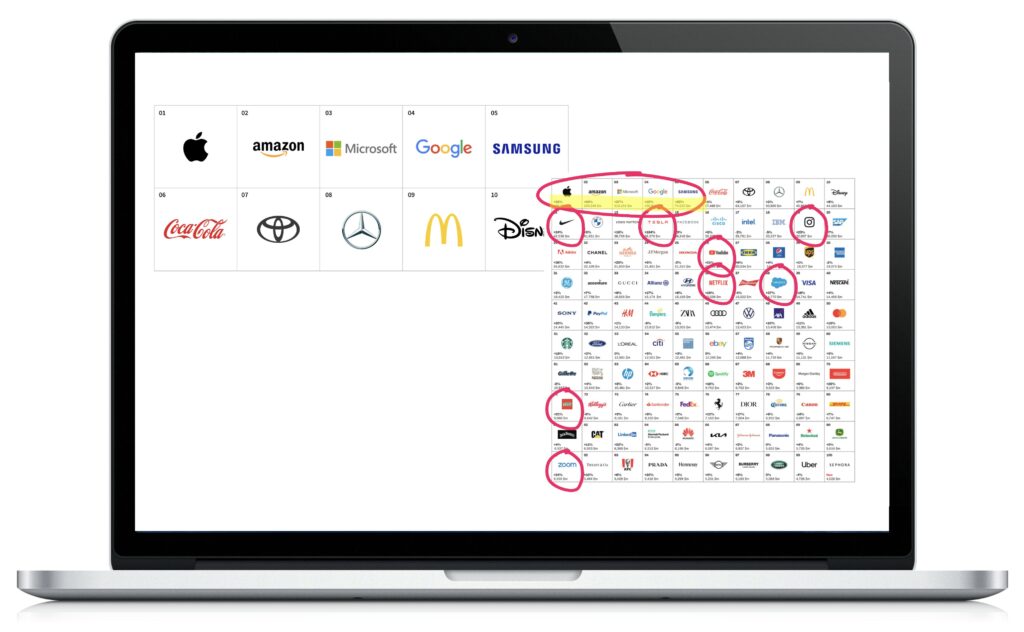
...and being a German, I love to deep dive into the German car industry - which is always an easy to comprehend + tangible example:
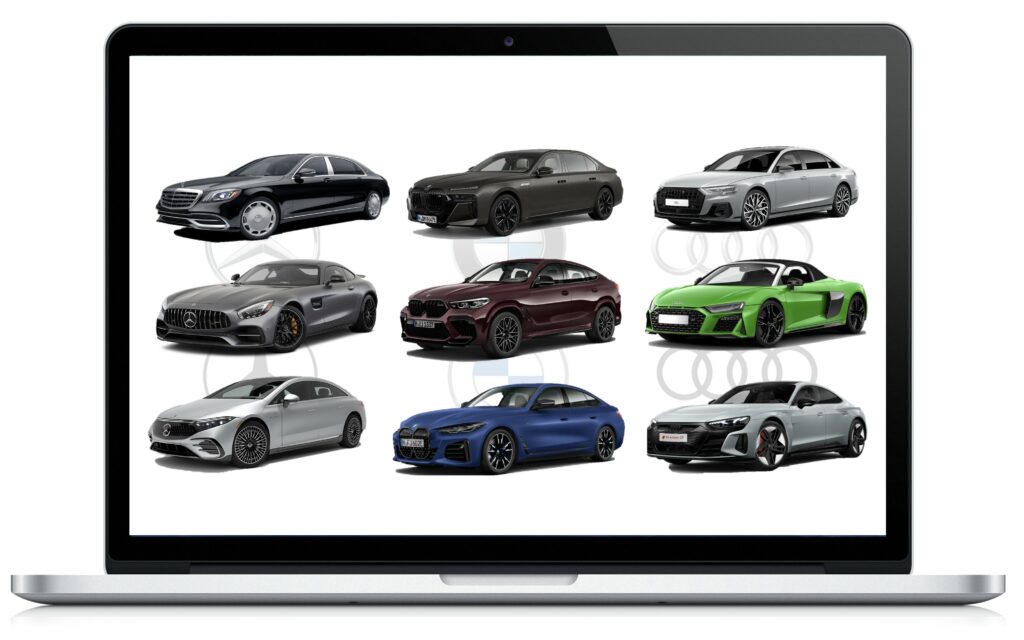
...and, actually most importantly, elaborate on the relationship between Brand Building + Brand Positioning + Product Proposition, which is scarily unfamiliar to too many (even marketing) people + too many organizations (of course, they would never acknowledge nor admit that 🤪)
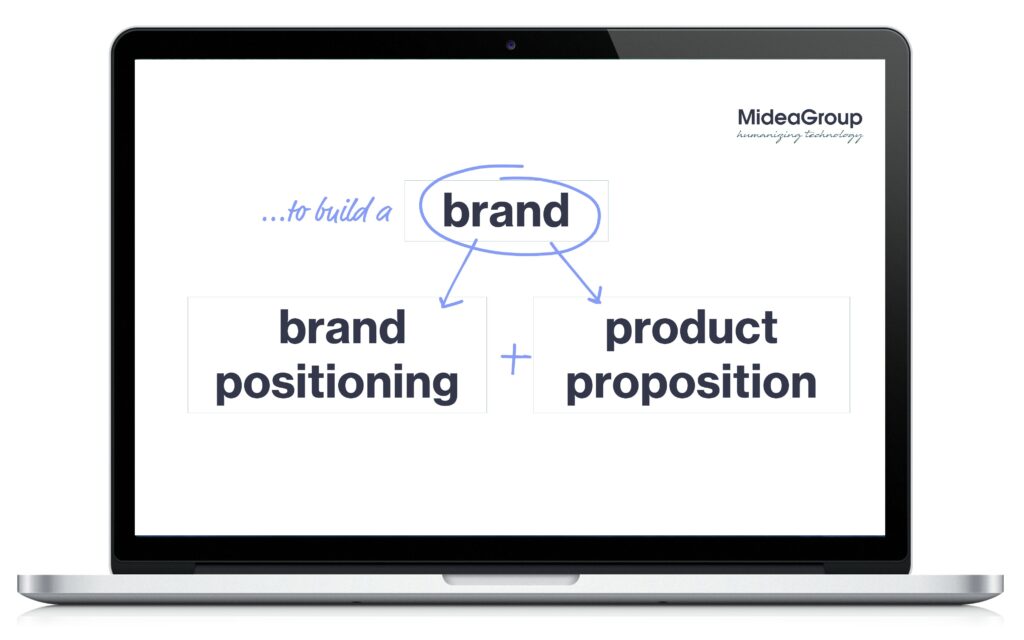
Brand Positioning &
Brand Architecture
It's essential for faster + better comprehension to give people/stakeholders not only the bigger picture + but also a 'more' familiar example that can stick to there mind(s).
I always had to start my presentations (externally, and even internally!) to set the scene that the Midea Group* holding is a high-tech B2B company with 5 high-growth business pillars:
- Building Technologies
- Robotics & Automation
- Smart Home**
- Electro-Mechanical
- Digital Innovation
...and all businesses are striving for one credo: #HumanizingTechnology.
* Midea Group’s globally 35 production centers and over 166,000 employees generated an annual revenue of more than USD51.39billion in 2023 making it thew #278 in the Global Fortune 500 list, while its 28 worldwide innovation centers and the strong commitment to R&D have resulted in more than 62,000 authorized patents to-date.
** Within the 'Smart Home' division of Midea Group you will find 15+ home appliance brands, ...which on simplified 'Brand Architecture' slide of mine looks like:
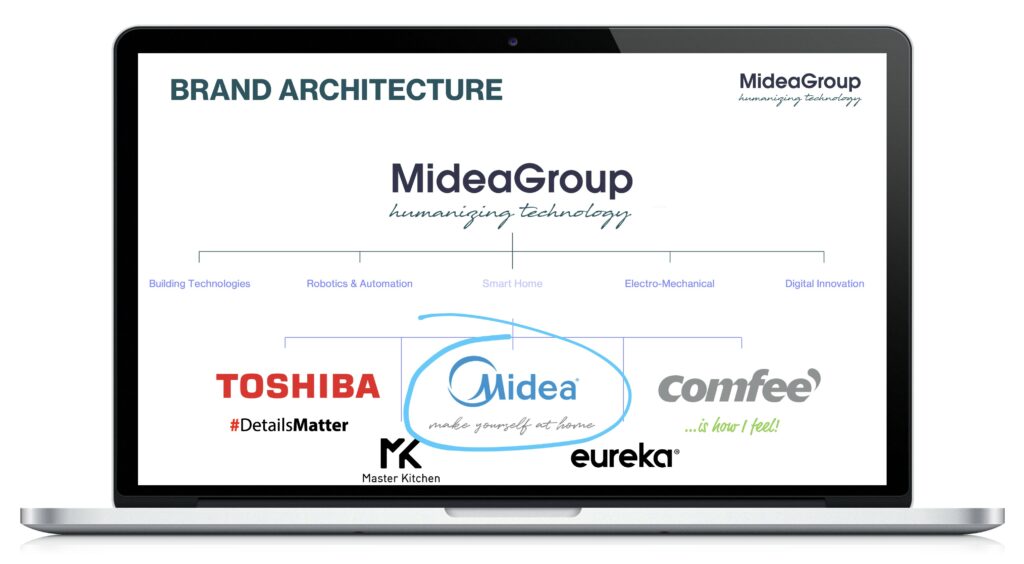
To even better visualize the 'Brand Architecture' is used to compare it to the Volkswagen Group and showcase how different Brands with very different Brand Positioning address + attract very different Target Consumers (of course with very different Product Portfolio with different Product Features and very different Prices Ranges)
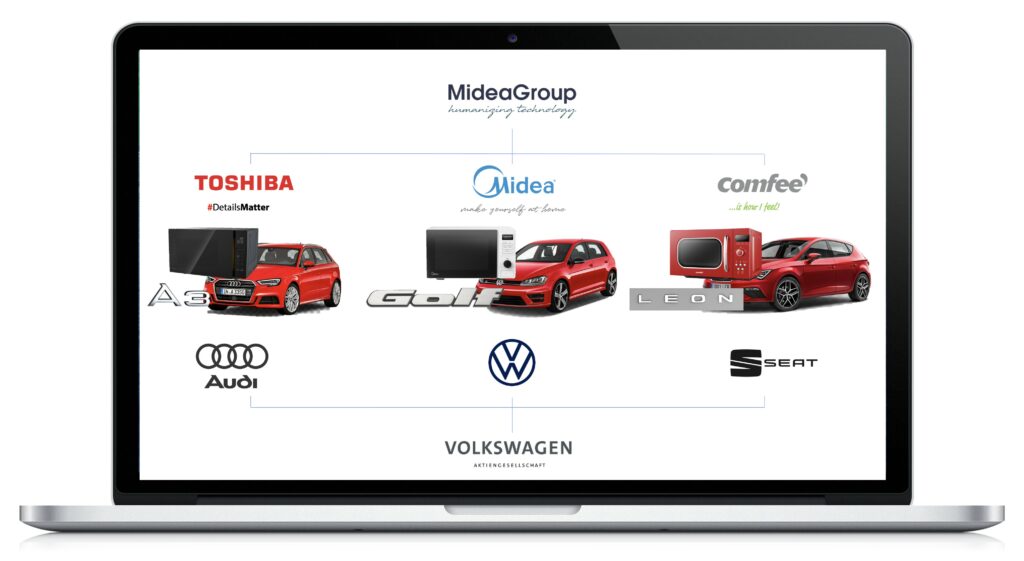
...here just using Midea Group's 3 main players vs Volkswagen Group's respective 3 main players.
I could have also gone deeper to find Midea Group counterparts for Bentley, Porsche, Lamborghini, Ducati, Volkswagen Commercial Vehicles & Co.
Brand Positioning
vs Brand House
...so, once the scene is set and all questions & doubts addressed, I would enter the brand's respective Brand Positioning space...
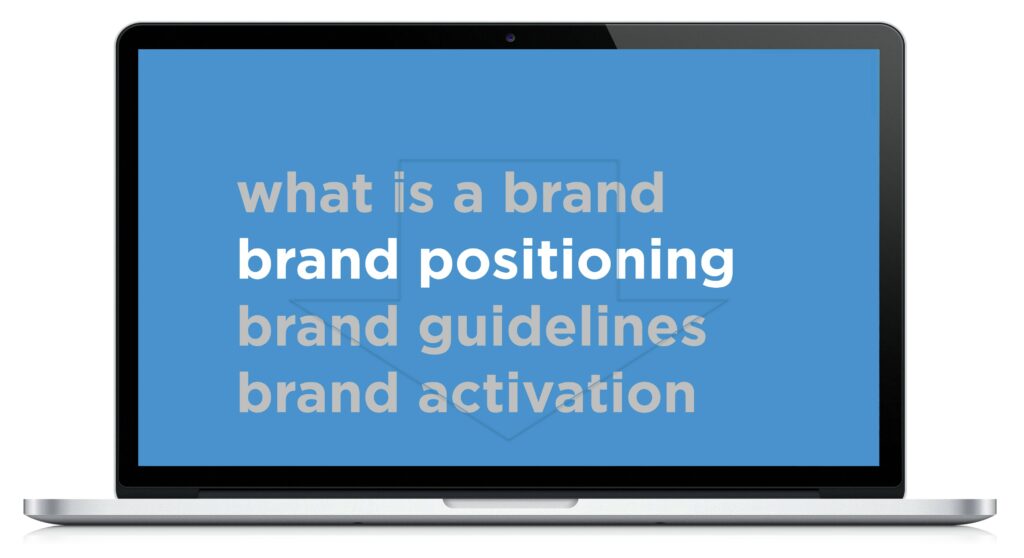
Developing + Presenting + Deploying your Brand Positioning can have multiple forms and frameworks like 'Brand Key', 'Brand Pyramid' or 'Brand House'... the essence however should be the same:
- a Brand Positioning is not just a Brand's Slogan but consists of several closely + meaningfully linked 'elements'
In my case of working on Midea Group's Home Appliance brand portfolio, is was almost obvious to use a 'Brand House' for all brand's which made it also far easier for all stakeholders to clearly see the difference in our 'Brand Street':
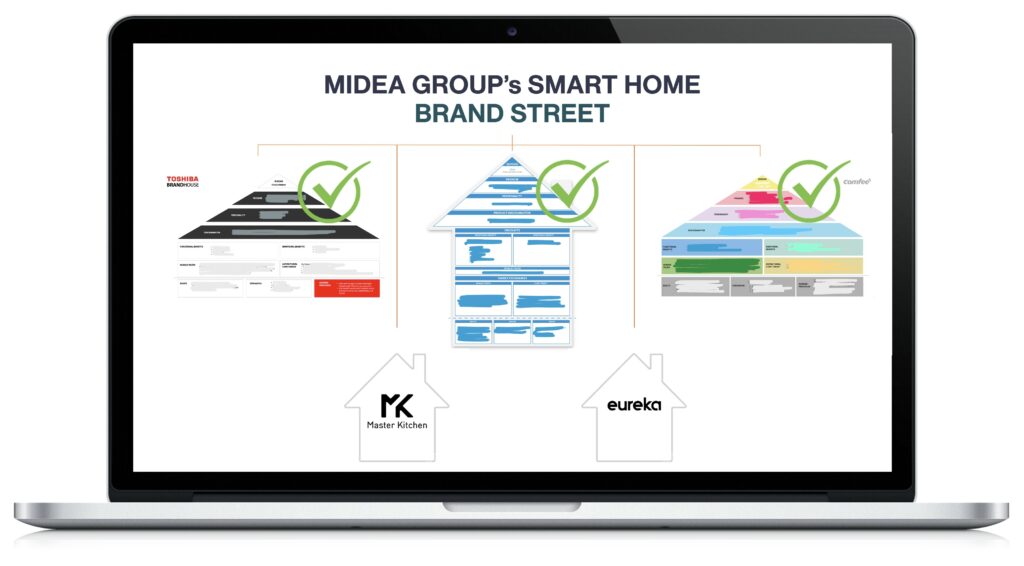
...and, as earlier mentioned + I cannot repeat enough: most important is that:
- you have 4 mayor 'must have' levels:
- Foundation
- (Target)Consumer
- Product(Service)
- Brand Elements
- you clearly defined each level for your brand! (= no marketing jargon bla bla bla)
- the more closely + meaningfully linked each block + each level are...
- ...the more logic + impactful you will feel your slogan 'on top' is summarizing + representing your:
- Brand House = Brand Positioning
Give you one example:
e.g. if already within your Foundation level your defined Focus is weak, literally the entire house is 'shaky'
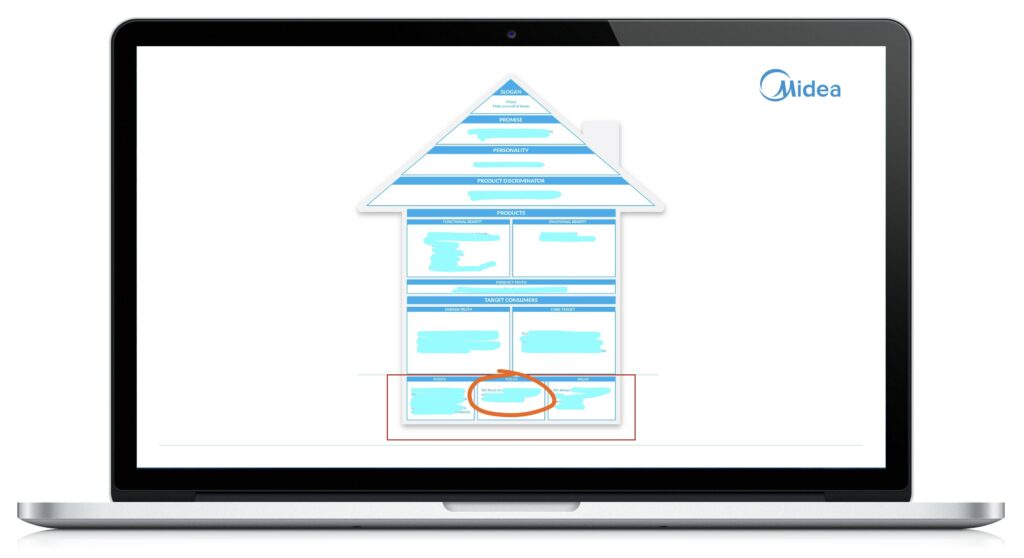
Midea Group's
Smart Home Appliances
Brand Street
Brand Anthem
Ideally hand-in-hand with the 'Brand Positioning' deployment = when you present the 'Brand House' level by level + brick by brick = you also have 'Brand Anthem' with you, which:
- visualizes the Brand House +
- gives a great glimpse on tonality indication of the brands communication style
Below a few 'Brand Anthem' examples:
B+ Podcast
Every Day
is a School Day
...besides deploying + teaching + training within the organizations I worked with (for) - I also enjoy sharing 'Case Studies' with students all around the world:


Wanna book a session for your organization = Book me

